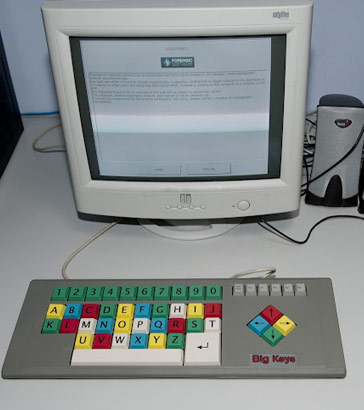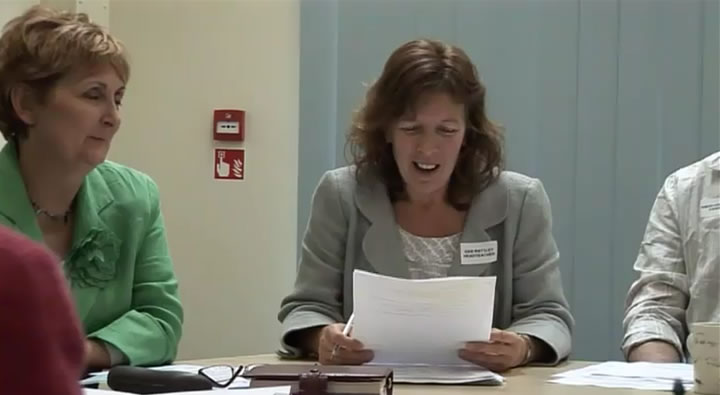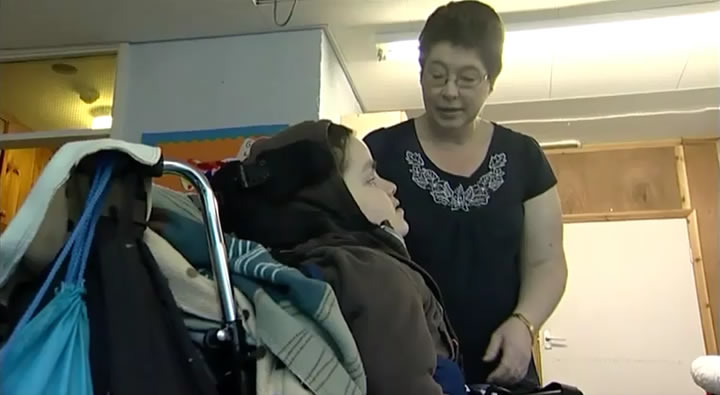- Mobility aids;
- Adaptations to the family home;
- Speech and language therapy;
- Physiotherapy;
- Play groups;
- Home education programmes;
- Respite care.
Sometimes, the absence of essential services can hinder a child's/young person’s independence and achievement.
Sophia spends some of her time in a mainstream school and some in a special school. She needs a ‘Tech/Talk’ to help her communicate but, at present, she uses it only in her special school setting.
Since September 2012, under the Equality Act 2010, schools are responsible for providing and maintaining auxiliary aids and services to disabled pupils to avoid them being at a substantial disadvantage in relation to their peers. Schools need only make 'reasonable adjustments', and if equipment or services are provided through an Education, Health and Care (EHC) Plan or a Statement of Special Educational Needs, the school does not have to duplicate this provision.
Schools may have to provide a disabled pupil with:
- A piece of equipment;
- Assistance from a sign language interpreter, lip-speaker or deaf-blind communicator;
- Extra staff assistance;
- An electronic or manual note-taking service;
- Induction loop or infrared broadcast system;
- Videophones;
- Audiovisual fire alarms;
- Readers for people with visual impairments;
- Assistance with guiding;
- An adapted keyboard;
- Specialised computer software.
For further details and clarification see section on 'Auxiliary aids' at the Equality and Human Rights Commission, Frequently asked questions – schools technical guidance.

- Physical resources (equipment);
- Human resources (staff and volunteer time).
Local authorities must provide 'all or any' of the welfare services listed in the Chronically Sick and Disabled Persons Act (CSDPA) 1970, where they assess that the relevant need exists. However, they may set eligibility criteria, which can vary greatly between regions, resulting in children/young people with the same needs receiving different levels of support depending on where their family lives.
The Chronically Sick and Disabled Persons Act (CSDPA) 1970 (section 2) lists the following welfare services:
- Practical assistance in the home;
- Meals;
- Recreational facilities;
- Holidays;
- Educational facilities;
- Telephone equipment;
- Travel assistance;
- Home adaptations.

Legislation and guidance
Other publications
- Equality and Human Rights Commission (2014) 'Frequently asked questions - schools technical guidance'. [Online at: http://www.equalityhumanrights.com/legal-and-policy/legislation/equality-act-2010/equality-act-codes-practice-and-technical-guidance/frequently-asked-questions-schools-technical-guidance; accessed: 18.2.15]
Media


